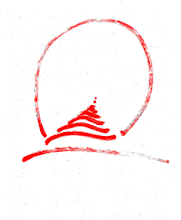Another way to improve your English FAST is the black spot program:
It's simple:
Pick the 3 most common mistakes you make, and FIX them.
then
pick the 3 most common mistakes you make, and FIX them.
then
pick the 3 most common mistakes you make, and FIX them.
etc....
he he he :-)
For starters:
Get (ask nicely) someone to fix your English and CAREFULLY find out what mistake you make often. Then fix it !
By that I mean: work out what it should be, and why.
Then practice it, make sure it does NOT happen again.
Many times I fix student's English and the next time they give me some work to look at: SAME D**** mistakes... same problem with definite indefinite articles (e.g. 'a' VS 'the')
Example: from your own email below:
you write "...but there may be slightly different."
mistake: plural VS singular, the sentence should be (CAPS show changes):
"...but THEY may be slightly different."
or
"...but there may be slight--- differENCES."
Pick any of the essays that someone corrected and proof read for you, where 'Track Changes' has been used. Pretty quickly you will that one kind of mistake happens a LOT. Fix it, focus on it. Learn it.
If you don't understand the reasons, for the correct way, just memorize it till it becomes second nature and sooner or later the sense and feeling of the 'correct' language structure comes to you.
Dr Hyko,
here is a question about academic writing:
(1) as you said, you have to FEEL the language , as you studied a foreign language.
But when I am summarizing the academic articles, a foreigner liek me always have a question:
For the English words of similar meanings in Chinese, how to identify their differences?
As a Chinese, the meanings of "rubbish" , "trash" and "garbage" are the same, but there may be slightly different.
So are there any specific dictionaries explaining this kinds of words ?
Also, are there any good books teaching academic language fore foreigners ?
According to your part instruction to some Chinese engineering students.
G
Dear Mistress G,
Here are some suggestions:
Read LOTS, of books in English which INTEREST you...
That expands your vocabulary.
That expands your vocabulary.
If not sure, about distinctions of rubbish, "rubbish" , "trash" and "garbbage",
pick a native speaker, ask them to explain, - this way you:
- get to meet more people
- experience more real life opinions.
- get an answer to your question that is up to date and real.
Books and dictionaries, are last on my list of useful tools :-P
H
H





My prev tutor is in Sydney. Looking for another one to teach me the "cheese holes" of my English.....
ReplyDelete